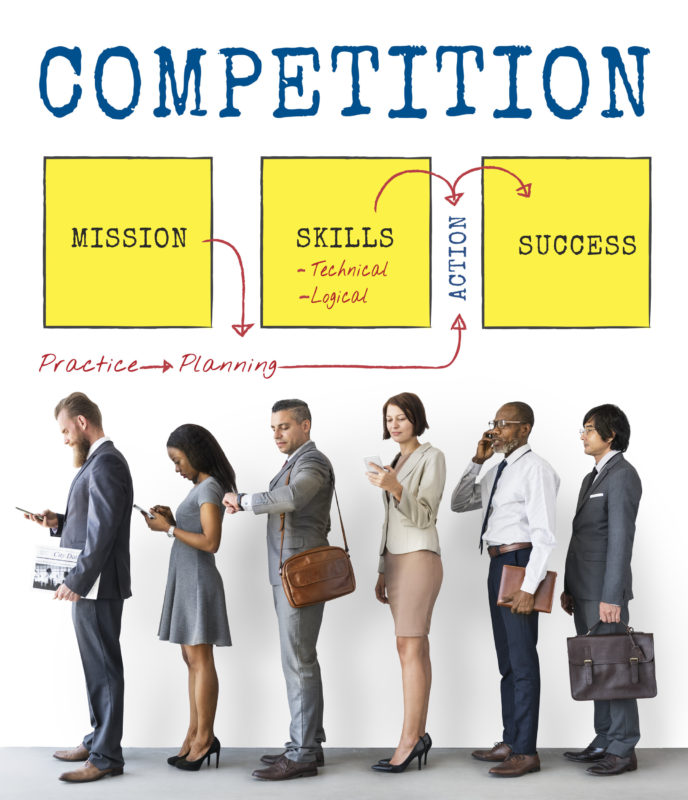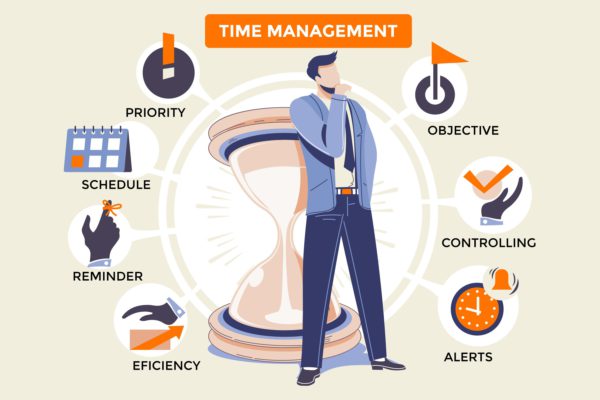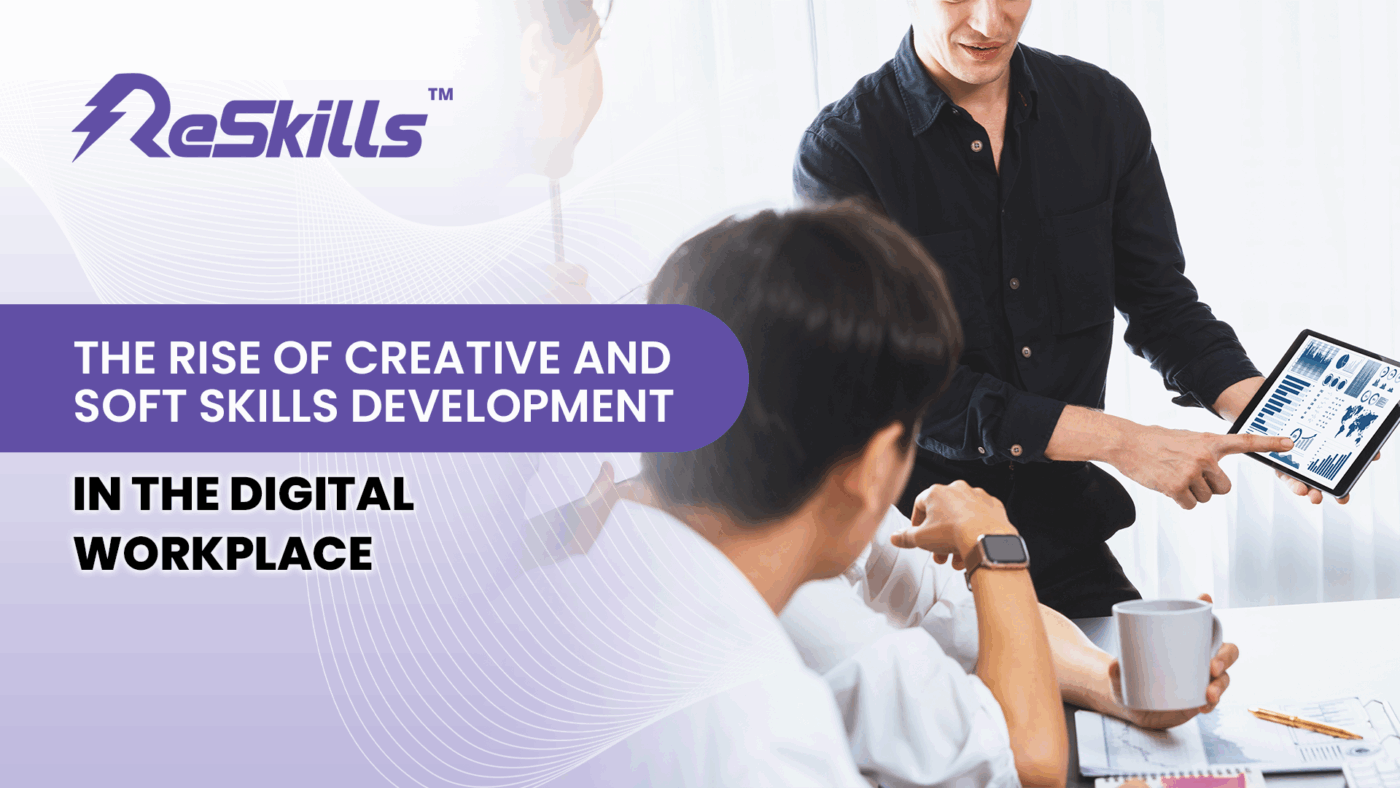The corporate landscape has undergone a seismic shift. While technical expertise once dominated hiring decisions, today’s employers increasingly prioritise creativity, emotional intelligence, and interpersonal skills. This transformation has sparked a revolution in online learning, with professionals seeking e-learning solutions that develop both their creative potential and human-centred capabilities.
Recent workplace studies reveal that 92% of talent professionals believe soft skills matter as much as, if not more than, hard skills. Yet many professionals struggle to find comprehensive digital learning platforms that effectively nurture these essential human qualities alongside technical competencies.
Why Creative and Soft Skills Matter More Than Ever
The Automation Effect
As artificial intelligence handles routine tasks, human creativity becomes irreplaceable. Companies need employees who can think outside conventional frameworks, solve complex problems, and innovate under pressure. This shift has made creative thinking, adaptability, and emotional intelligence the new currency of professional success.
The digital workplace demands professionals who can navigate virtual collaborations, manage remote teams, and maintain authentic connections through screens. These scenarios require a unique blend of technological fluency and deeply human skills that traditional education often overlooks.
The Remote Work Revolution
Remote and hybrid work environments have fundamentally changed how we communicate, collaborate, and create. Professionals must now excel at virtual presentations, digital storytelling, and online relationship building. The ability to convey empathy through video calls, facilitate engaging virtual meetings, and inspire teams from a distance has become crucial for career advancement.
Essential Creative and Soft Skills for Digital Success
Communication and Storytelling
Modern professionals need to master various communication mediums – from crafting compelling emails to creating engaging video content. Digital storytelling has become essential for marketing professionals, managers, and entrepreneurs who must capture attention in increasingly crowded online spaces.
Self study approaches to communication development now include podcast creation, social media storytelling, and multimedia presentation design. These skills directly translate to better client relationships, more effective team leadership, and enhanced personal branding.
Emotional Intelligence and Empathy
Understanding and managing emotions – both your own and others’ – determines success in virtual environments. Leaders who can recognise team burnout through video calls, provide meaningful feedback via digital platforms, and maintain team morale during challenging projects consistently outperform their peers.
Online learning platforms now offer interactive simulations, role-playing exercises, and peer feedback systems that help professionals develop these nuanced interpersonal abilities through structured practice and reflection.
Creative Problem-Solving
The modern workplace presents complex, multi-faceted challenges that require innovative thinking. Design thinking methodologies, brainstorming techniques, and creative collaboration tools have become essential skills across industries, not just creative fields.
Effective Digital Learning Strategies for Soft Skill Development
| Skill Category | Learning Method | Digital Tools | Assessment Approach |
| Communication | Video practice, peer feedback | Recording tools, collaboration platforms | Presentation evaluations, 360-degree feedback |
| Emotional Intelligence | Scenario-based learning, reflection journals | Simulation software, mobile apps | Self-assessment, behavioral observation |
| Creativity | Project-based challenges, design thinking workshops | Creative software, collaboration boards | Portfolio review, innovation metrics |
| Leadership | Virtual team management, coaching practice | Leadership simulators, feedback platforms | Performance metrics, team surveys |
Interactive Learning Experiences
Traditional lecture-based e-learning fails to develop soft skills effectively. Modern digital learning strategies incorporate interactive elements like virtual reality scenarios, peer collaboration projects, and real-time coaching sessions. These approaches mirror workplace situations while providing safe environments for skill practice and refinement.
Successful programs combine theoretical knowledge with practical application, allowing learners to immediately implement new techniques in their professional environments. This integration of learning and application accelerates skill development and increases retention rates.
Personalised Learning Paths
Effective soft skills development requires personalised approaches that account for individual learning styles, career goals, and existing skill levels. Advanced e-learning solutions use adaptive technologies to customise content delivery, pacing, and assessment methods for optimal learning outcomes.
Self study approaches benefit from structured guidance that helps learners identify their development priorities and track progress systematically. Without a proper framework, soft skills development can feel vague and unmeasurable.

Measuring Soft Skills Progress in Digital Environments
Portfolio-Based Assessment
Unlike technical skills, soft skills require demonstration through real-world application. Digital learning platforms increasingly use portfolio-based assessments where learners document their growth through project reflections, peer testimonials, and supervisor feedback.
Video portfolios allow learners to showcase communication improvements, while collaboration platforms track teamwork effectiveness and leadership development over time.
Peer Learning and Feedback Systems
Soft skills develop best through human interaction and feedback. Online learning communities create opportunities for peer coaching, group projects, and collaborative problem-solving that mirror workplace dynamics while providing structured learning outcomes.
These systems enable learners to practice giving and receiving feedback, facilitating discussions, and managing conflict resolution in supportive environments before applying these skills in high-stakes professional situations.
The Future of Creative Skills Development
Integration with Technical Training
The most effective professional development programs seamlessly blend creative and technical skill development. Instead of treating these as separate domains, forward-thinking online learning platforms integrate creativity exercises into technical training and incorporate digital tools into soft skills development.
This holistic approach reflects the reality of modern work, where success requires both technological competency and human-centred skills working in harmony.
Continuous Learning Culture
Creative and soft skills require ongoing development and refinement. Unlike technical certifications that provide clear endpoints, interpersonal skills evolve throughout careers and adapt to changing workplace dynamics.
Effective digital learning strategies foster continuous improvement mindsets, providing learners with resources for ongoing development and communities for sustained growth.
Overcoming Common Development Challenges
Time Constraints and Consistency
Busy professionals often struggle to maintain consistent soft skills development. Effective e-learning solutions provide flexible scheduling options, micro-learning modules, and mobile-friendly content that fits into demanding schedules.
Gamification elements and progress tracking systems help maintain motivation and accountability without requiring extensive time commitments.

Measuring Intangible Progress
Unlike technical skills with clear benchmarks, soft skills development can feel abstract. Modern digital learning platforms address this challenge through structured reflection exercises, goal-setting frameworks, and peer feedback systems that make progress visible and measurable.
Building Your Creative and Soft Skills Foundation
The integration of creativity and emotional intelligence with technical expertise defines today’s most successful professionals. As workplace dynamics continue evolving, those who invest in comprehensive skill development – both technical and human-centred – position themselves for sustained career growth and leadership opportunities.
The key lies in finding learning platforms that understand this integration and provide structured pathways for holistic professional development.
Ready to transform your career by developing the creative and soft skills that set you apart in today’s competitive digital workplace? ReSkills offers a comprehensive approach to professional development online courses that seamlessly blend technical expertise with essential human skills.
Our innovative platform provides personalised learning paths, interactive experiences, and real-world application opportunities designed for today’s professionals. Don’t let skill gaps hold back your career potential – discover how ReSkills can help you master both the technical and interpersonal abilities that drive success in the modern workplace!




